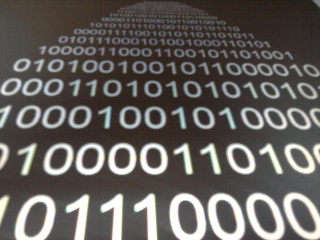How to bring out your inner data scientist

At the end of last year, writing in Harvard Business Review, Tom Davenport, visiting professor at Harvard University and author of Competing on Analytics, proclaimed the role of data scientist to be the “sexiest job of the 21st century.”

Of course, the century is still young. I don't know what was proclaimed as the sexiest job back in 1912 (steam locomotive engineer?), but I'm sure it wasn't in style by 1999. Still, data scientists -- those professionals charged with taking massive amounts of data and looking for patterns that will produce insights no one else has seen -- are certainly the occupation dujour in today's data-crazed business world. But sexier than the job of, say, a movie producer, high-end travel magazine publisher, or divorce lawyer?
Let's go with data scientist for the sake of argument. The good news is it's not necessarily an elitist profession. For starters, don't be put off by the title -- being a data scientist isn't just about the "data," or being a "scientist." As Davenport put it, a true data scientist is one who uses his or her imagination to look at information in a different way. “While people without strong social skills might thrive in traditional data professions, data scientists must have such skills to be effective.”
Interestingly, it appears many people are actually assuming data scientist-type roles in their jobs, even if they're not being called data scientists. In a survey of 199 data managers I conducted as part of my work with Unisphere Research and Information Today, Inc., we found exactly one respondent who actually had the title of "data scientist."
Instead, the survey, conducted among members of the Independent Oracle Users Group, found that the traits of data scientists are already seen within today’s organizations, in the day to day work performed by database administrators, analysts, managers and consultants. The activities reported on the rise in most people's jobs (cited by a majority, in order of mentions): communicating or ”telling a story” with data; working with end users to determine information requirements in new or modified systems; translating business needs into analytic and reporting requirements; and participating in cross-functional teams or data center of excellence.
Another study of 302 professionals finds data gurus aren't necessarily who you may think they are. The survey, conducted by the International Institute for Analytics (IIA) and Talent Analytics, finds that while analytics professionals tend to have their fair share of education, only 16 percent have doctorates, and "those cluster mostly in management positions," reports Beth Schultz of AllAnaltyics. Slightly less than half -- 47 percent -- have Master's degrees; 36 percent have Bachelor's or less. "Math/statistics and business dominate the areas of study, while surprisingly few have degrees in science, economics, or finance."
Talent Analytics CEO Greta Roberts says while professionals with art degrees may not be suited for a data scientist role, it helps -- a lot -- to have a creative edge. "We found that the analytics professionals had creative tendencies, but not enough to emerge into an artistic degree," she explains. "So – it’s a subtlety – hiring people with just enough creativity combined with the other characteristics that are important."
Our study with the IOUG finds that while many data scientist skills are associated with “big data companies” such as Google or Yahoo, survey respondents—many of whom represent smaller or more mainstream organizations, such as manufacturers or hospitals—also see these requirements emerging within their enterprises.
The survey asked respondents to identify the most important skills they see going with the data scientist role. Note the parallels to the current skills on the rise mentioned above:
- Developing analytic models
- Mining data for patterns
- Bridging the gap between IT and business processes
- Creating and applying analytical algorithms to organizational data
- Communicating and “telling a story” with the data to the business.
This post was originally published on Smartplanet.com